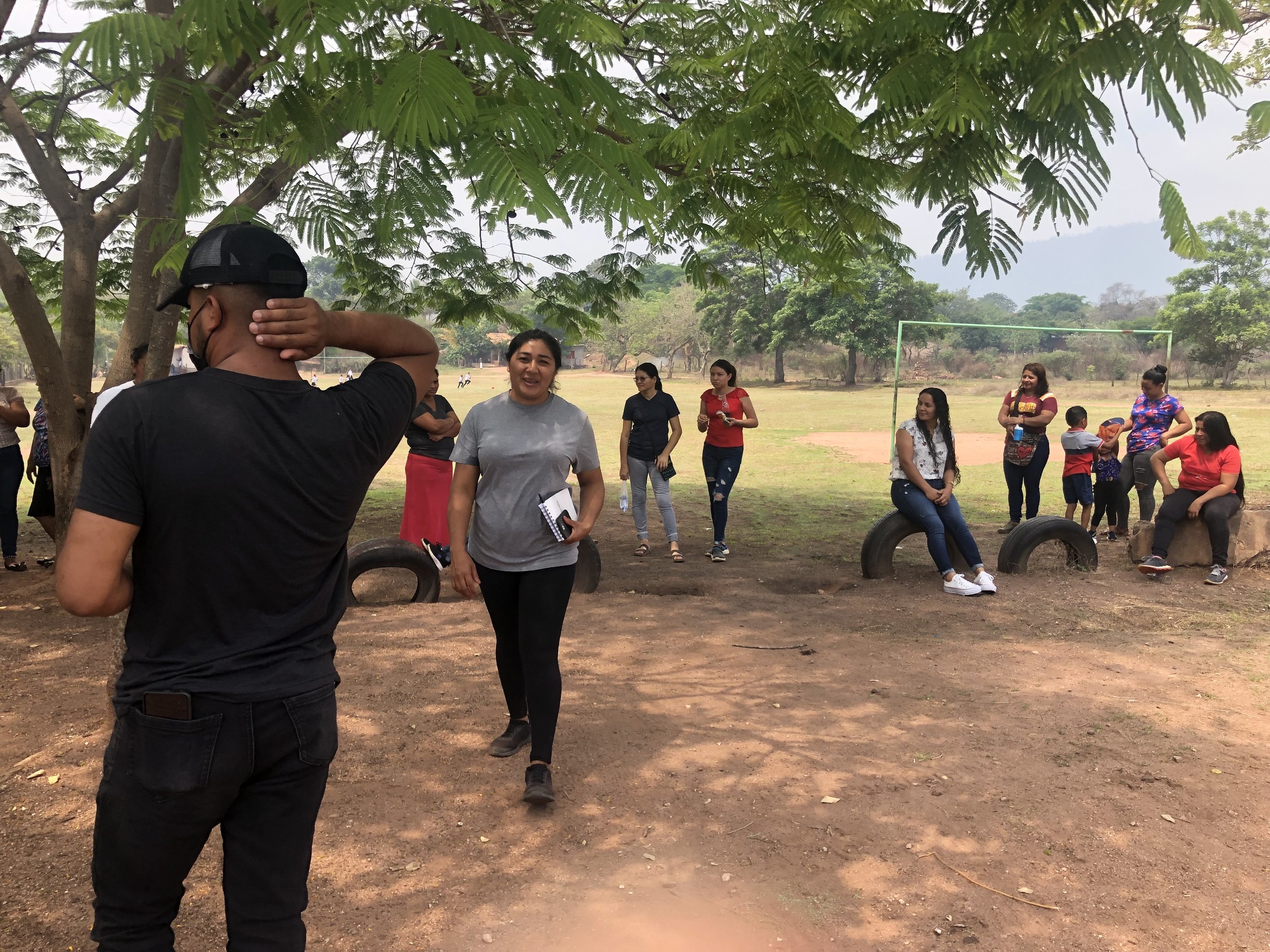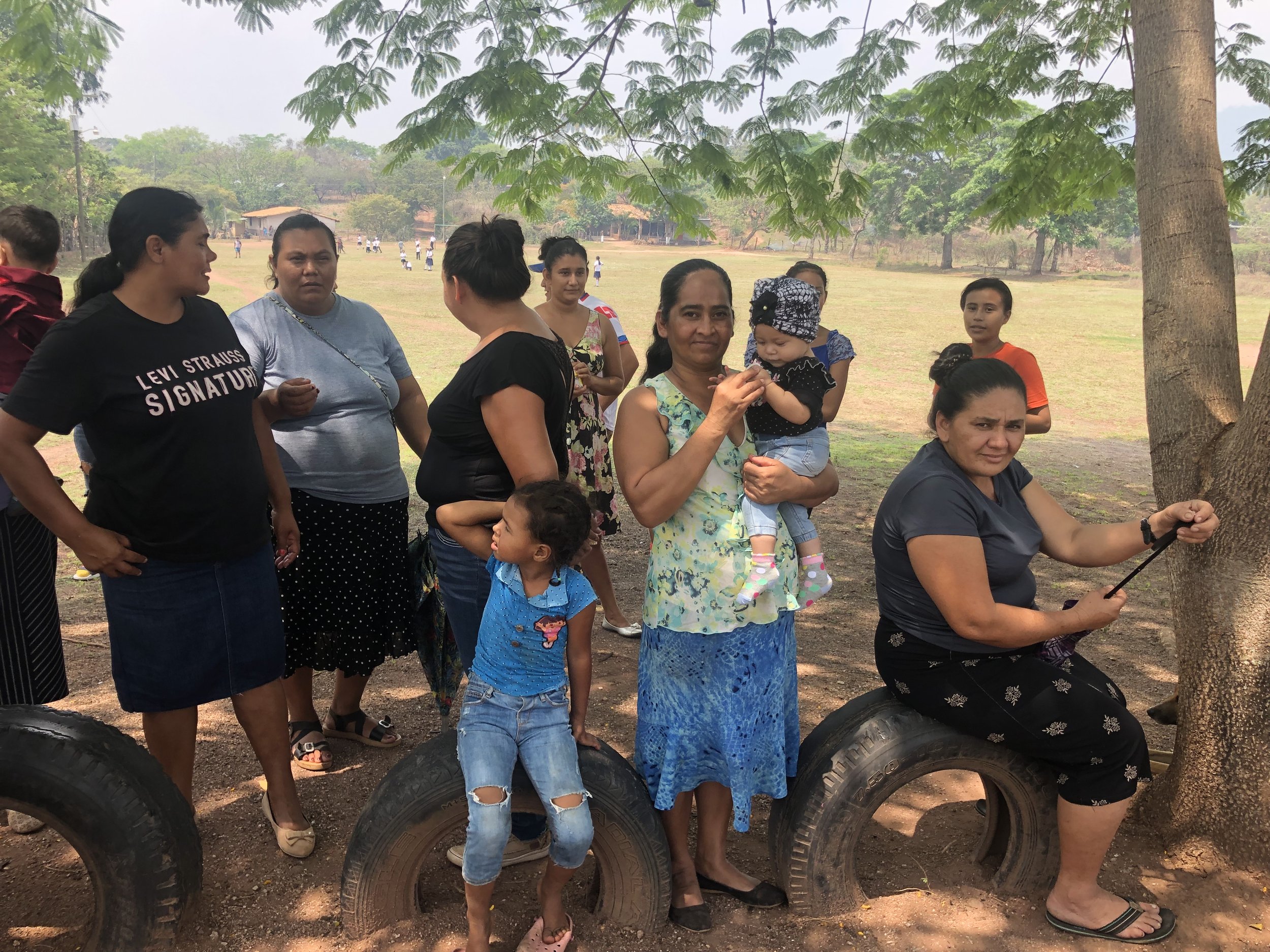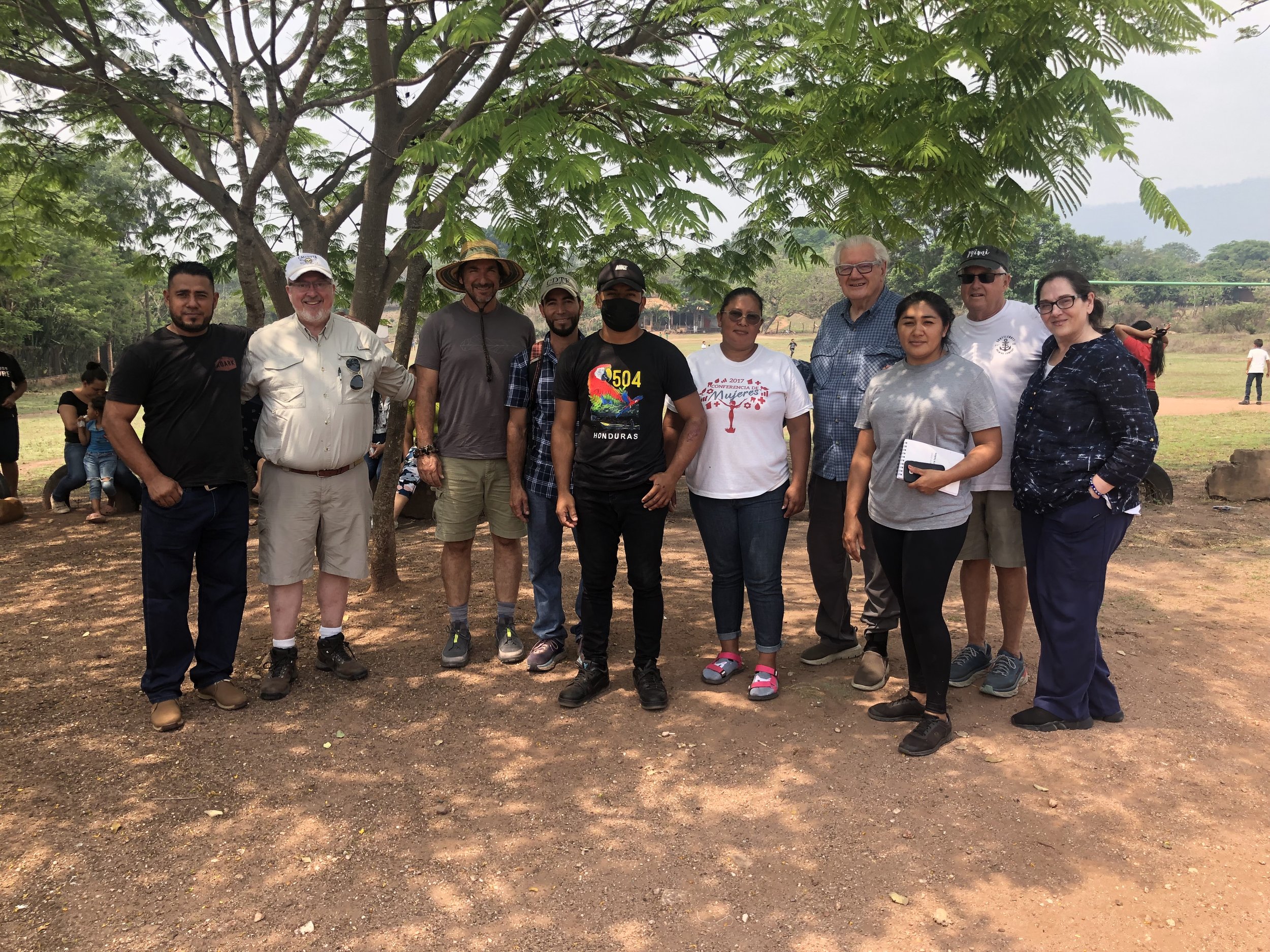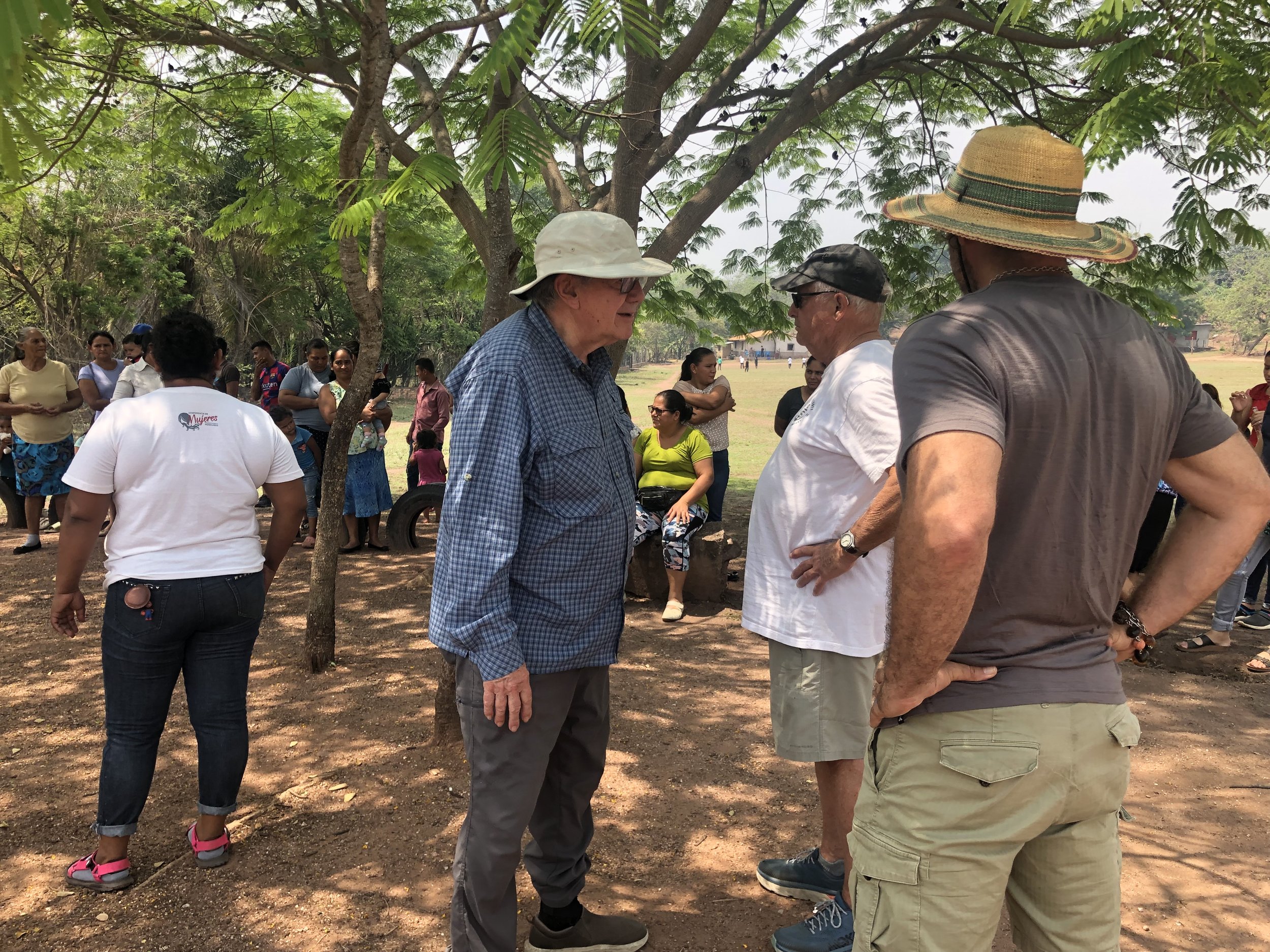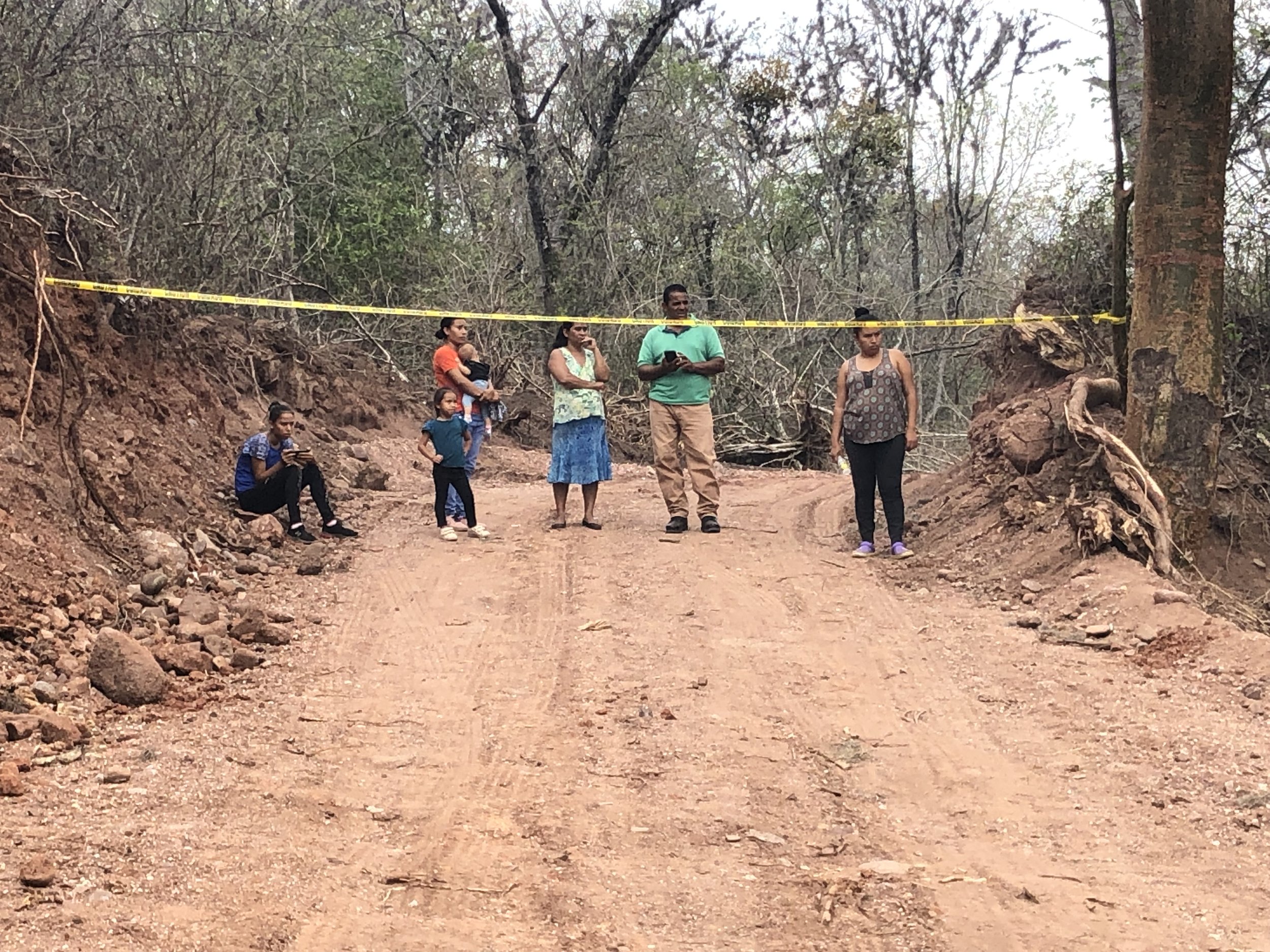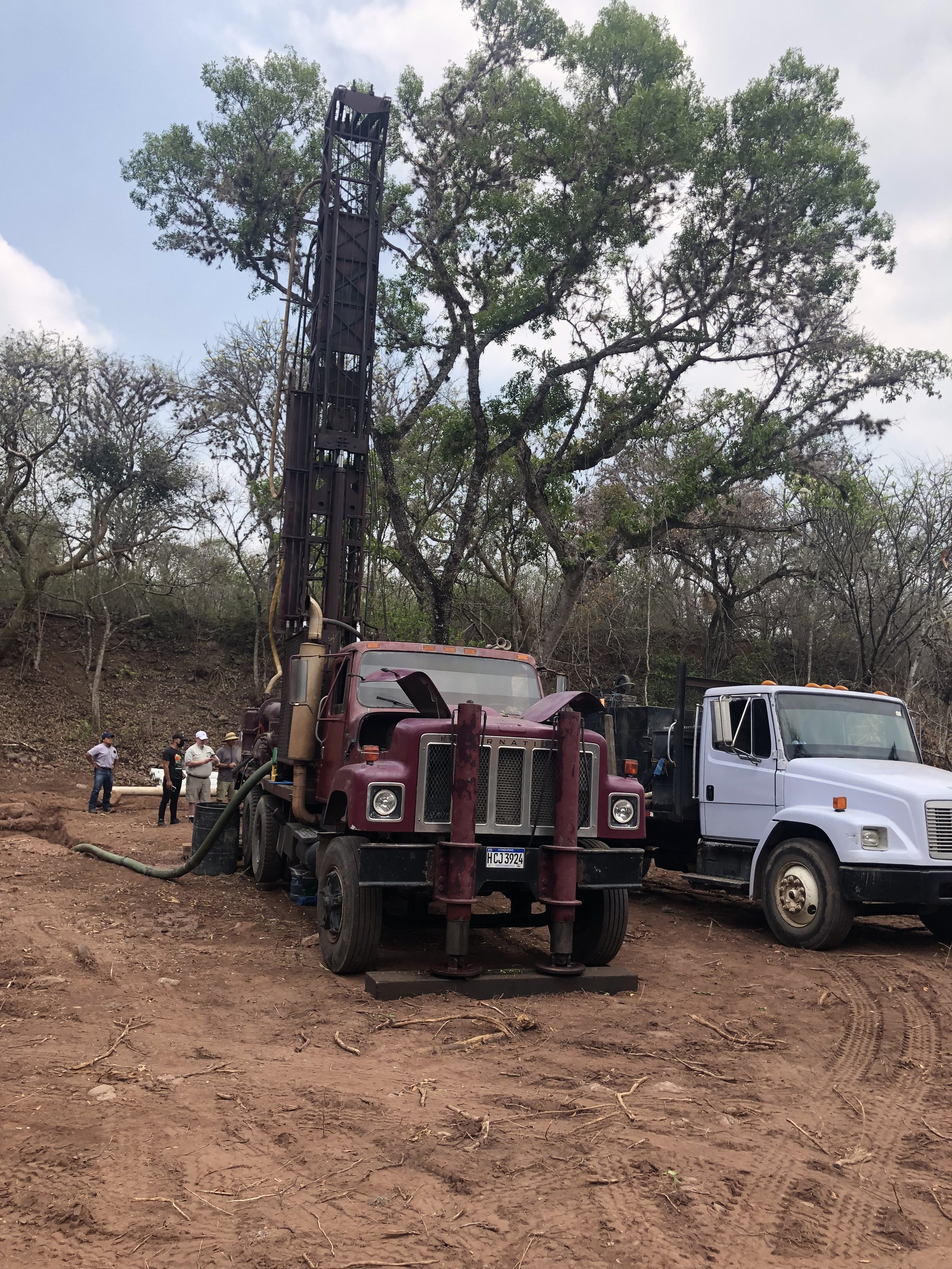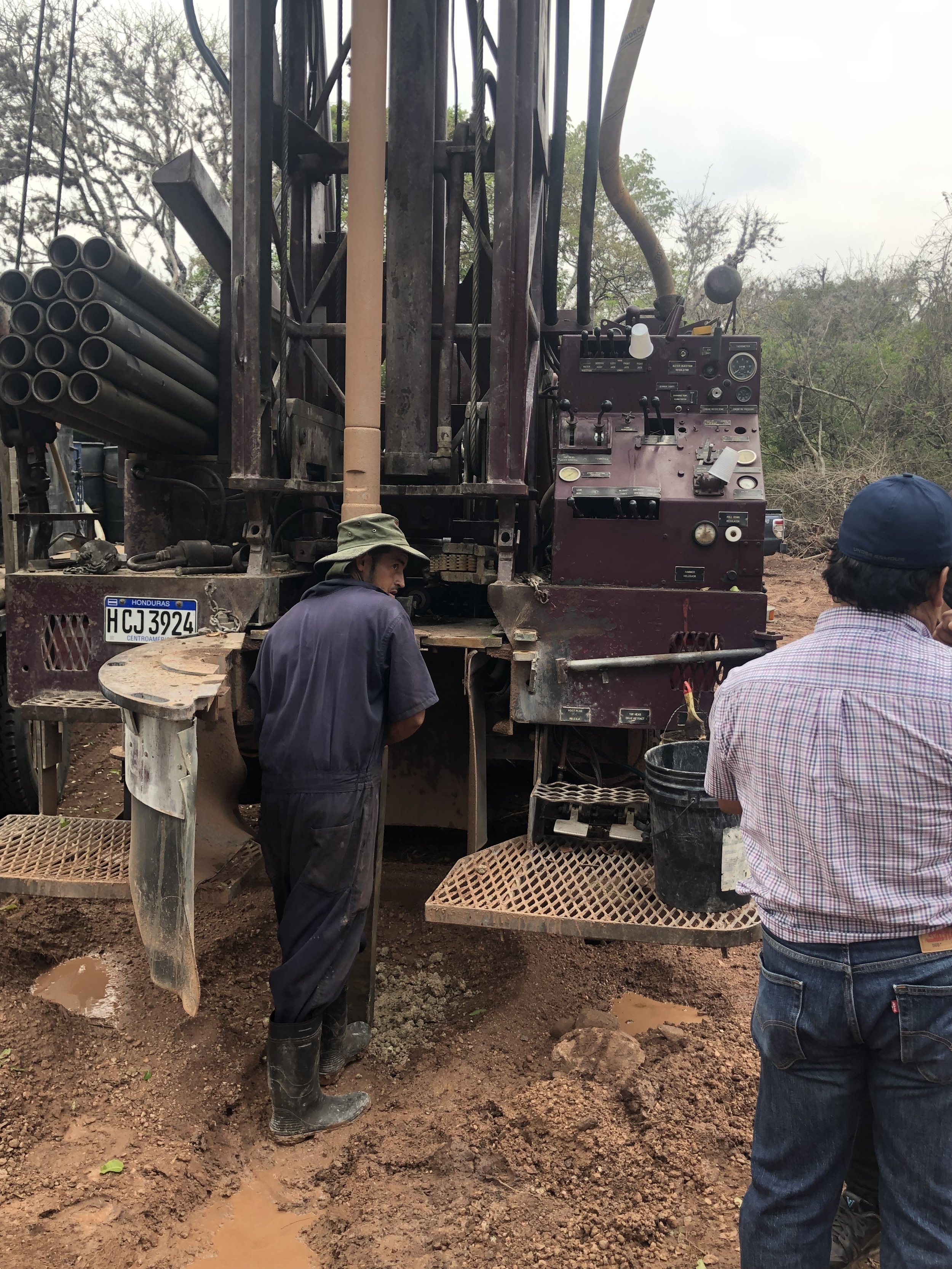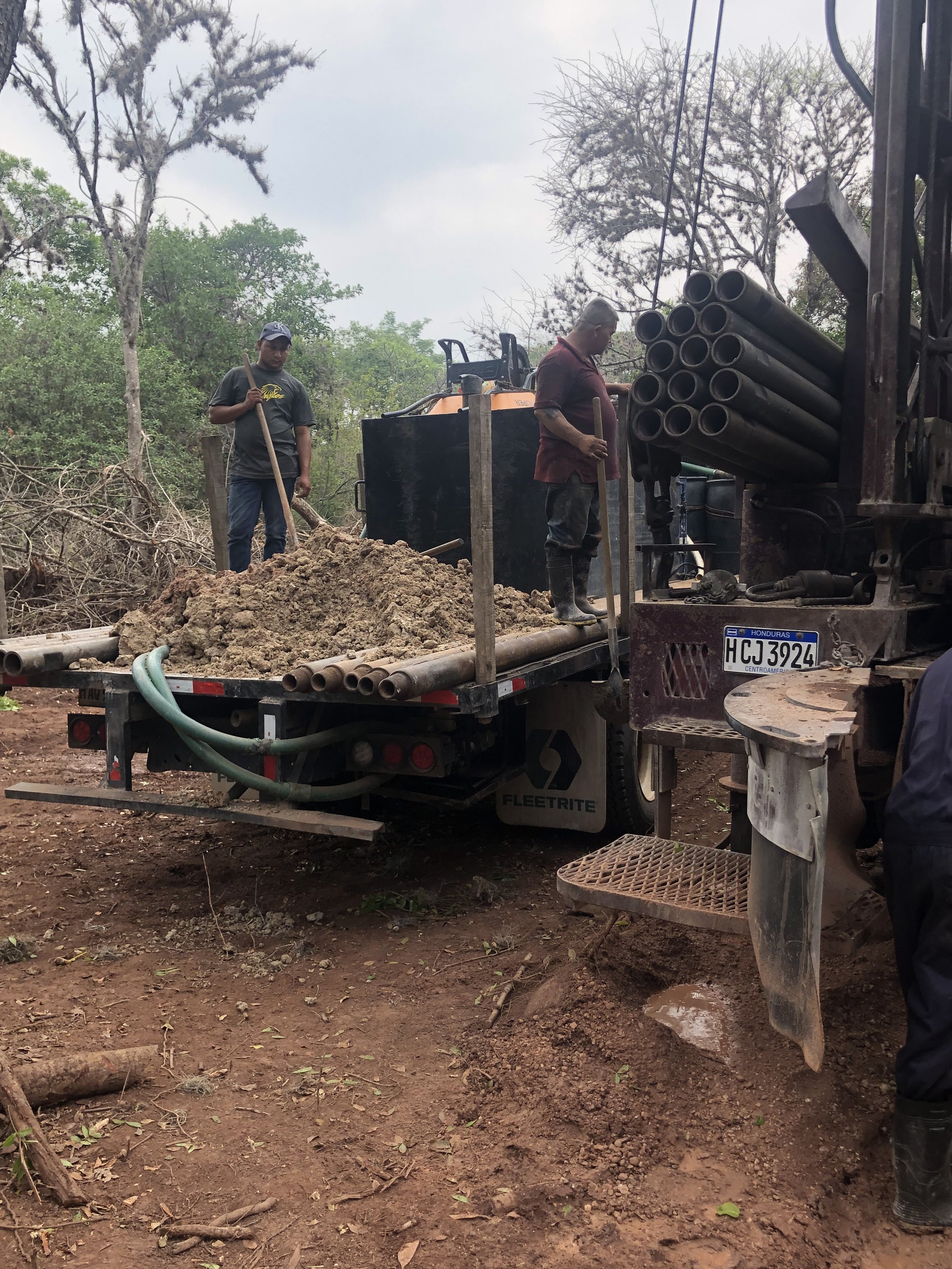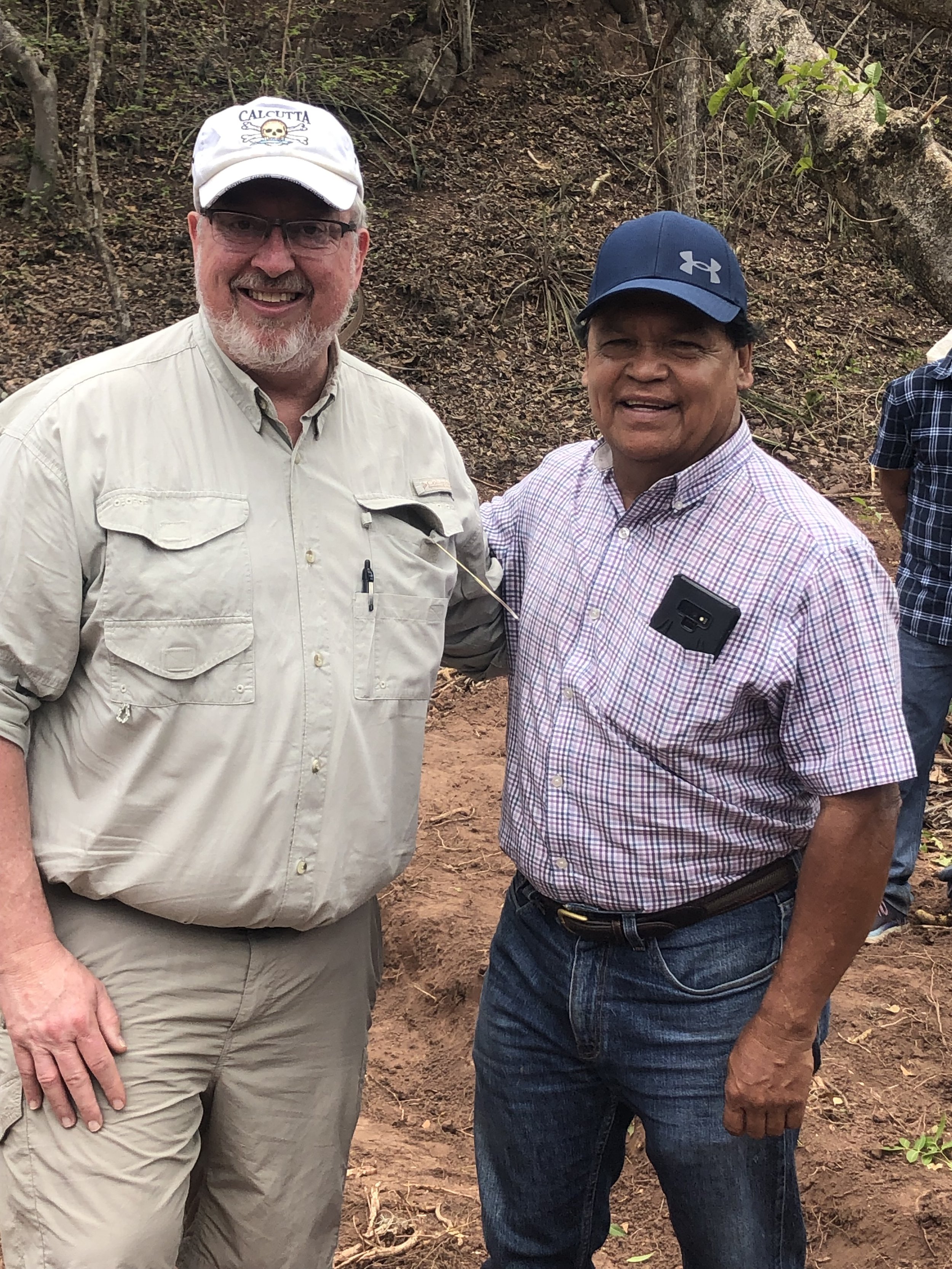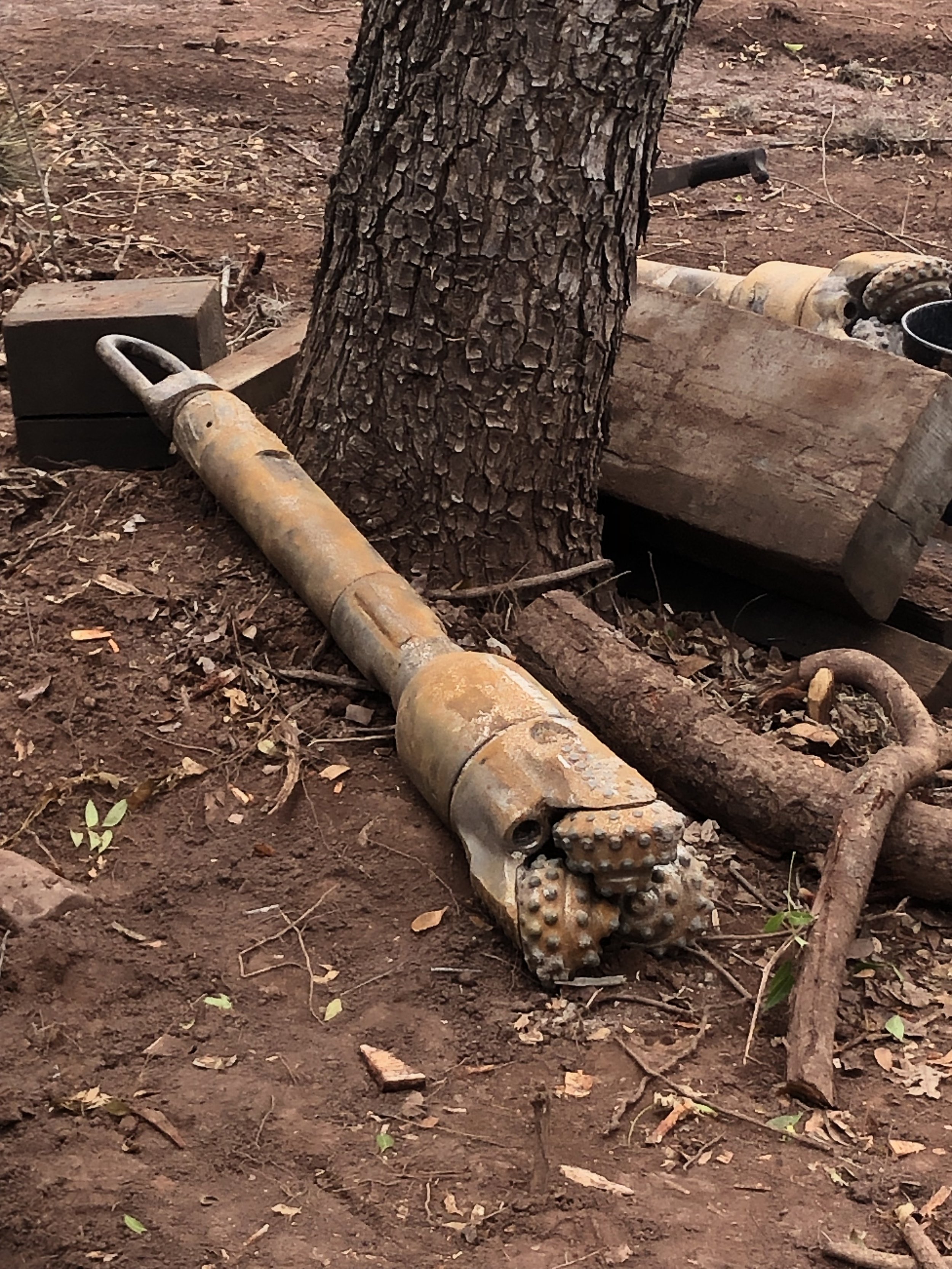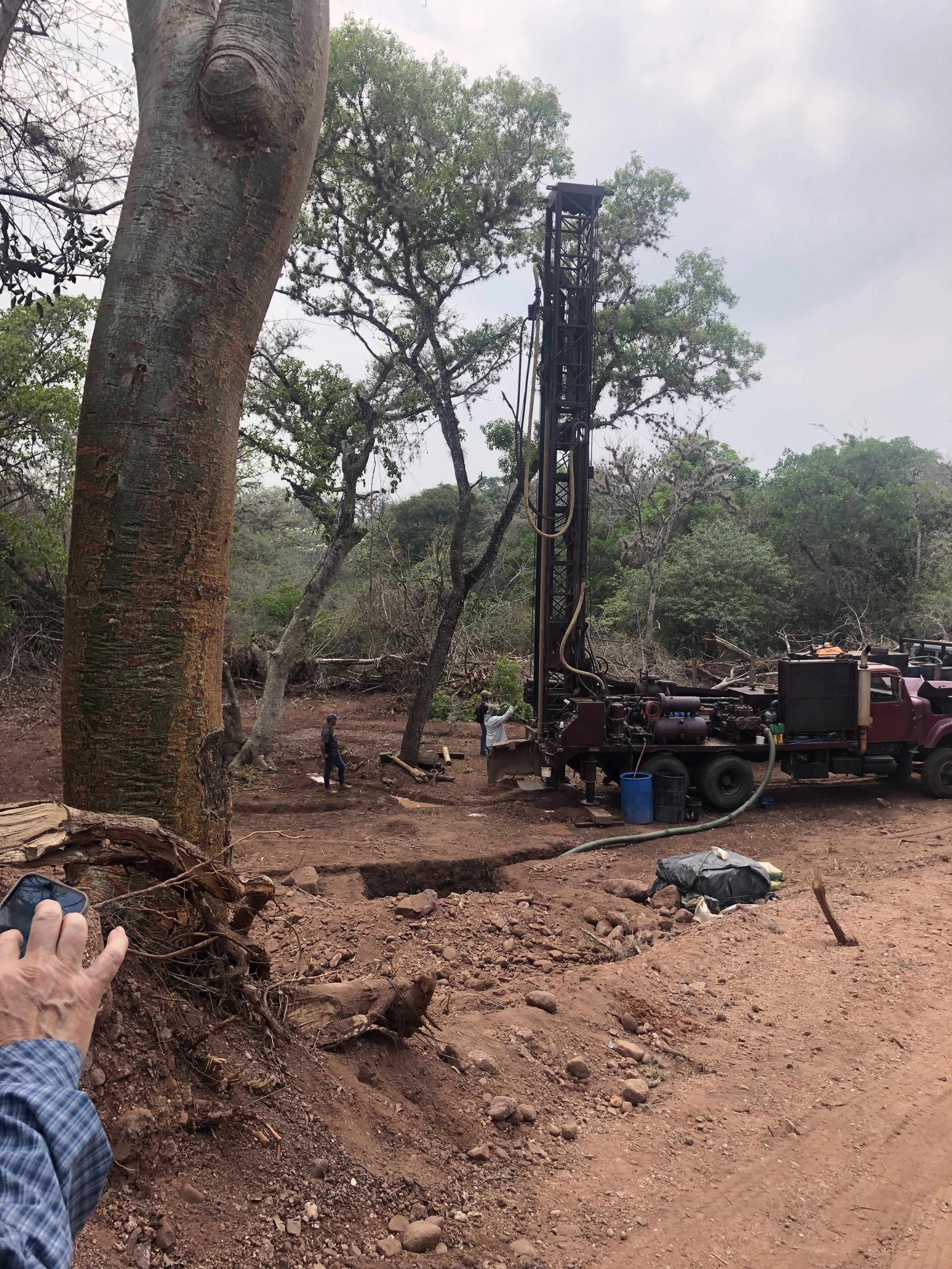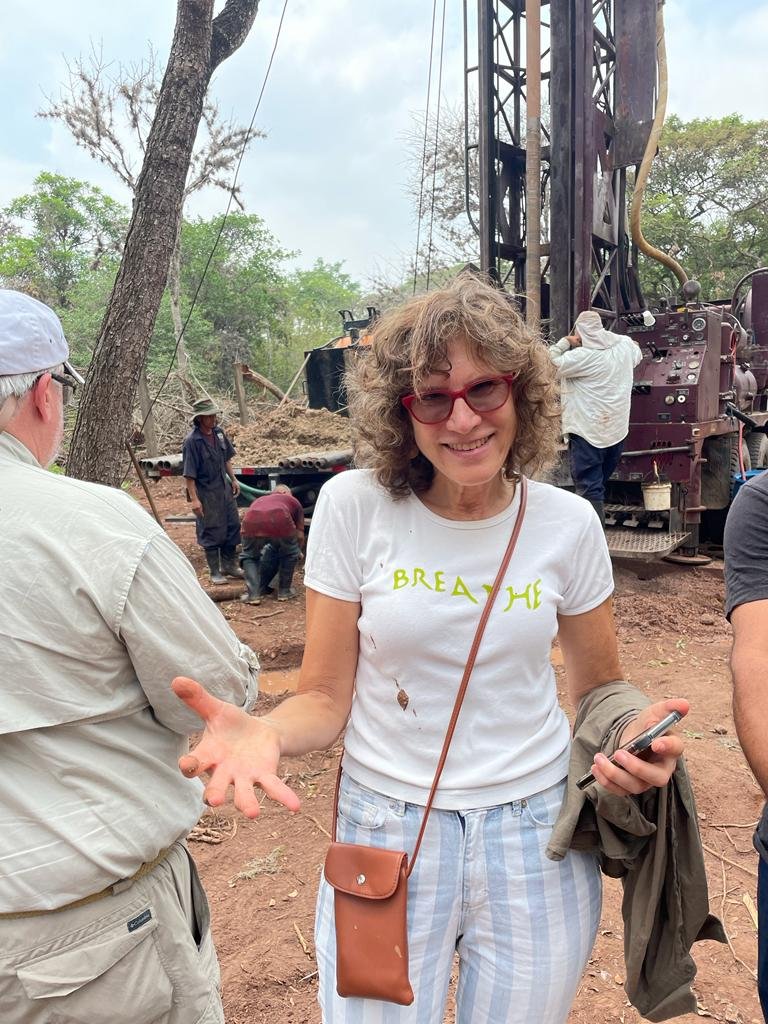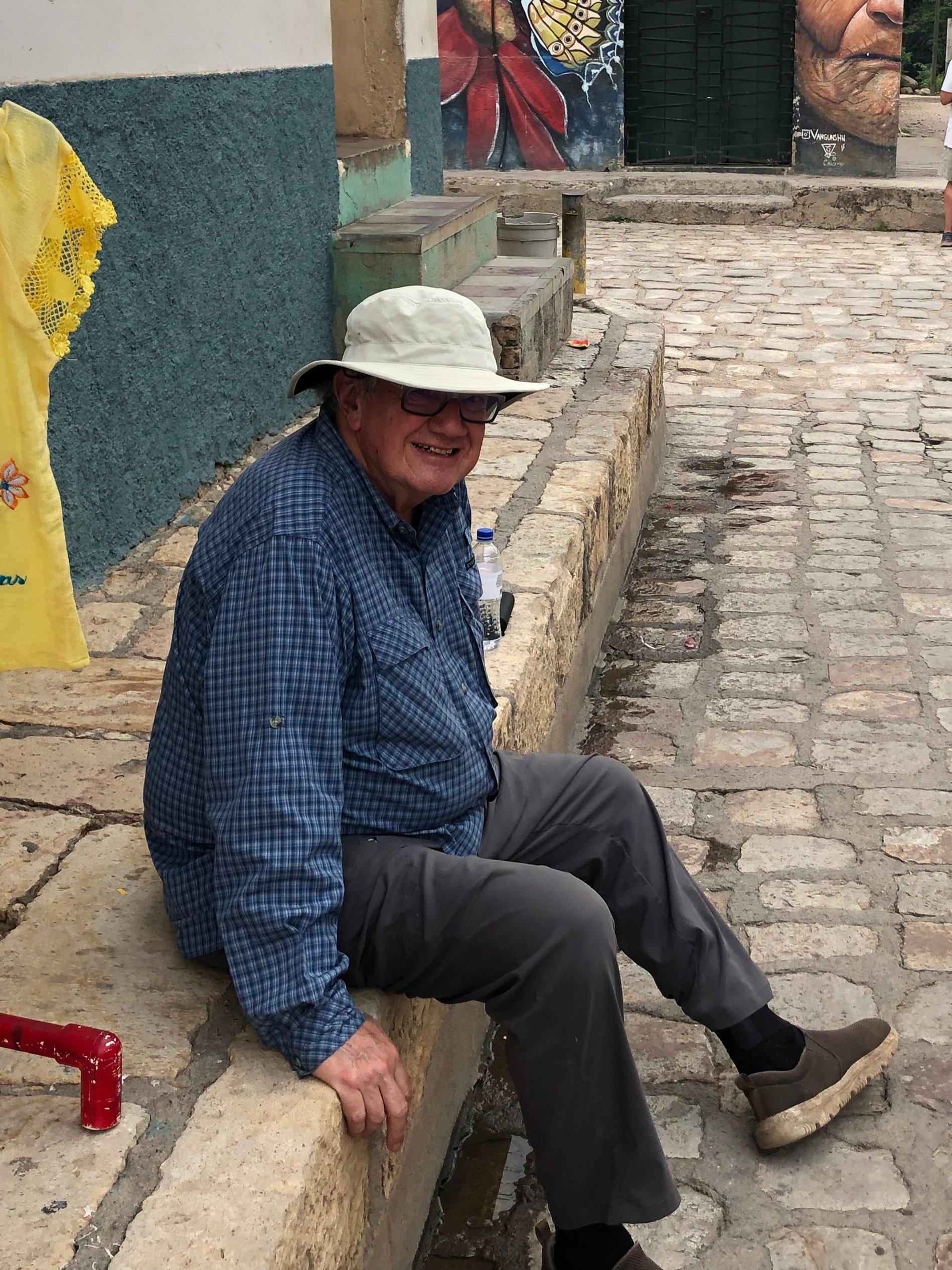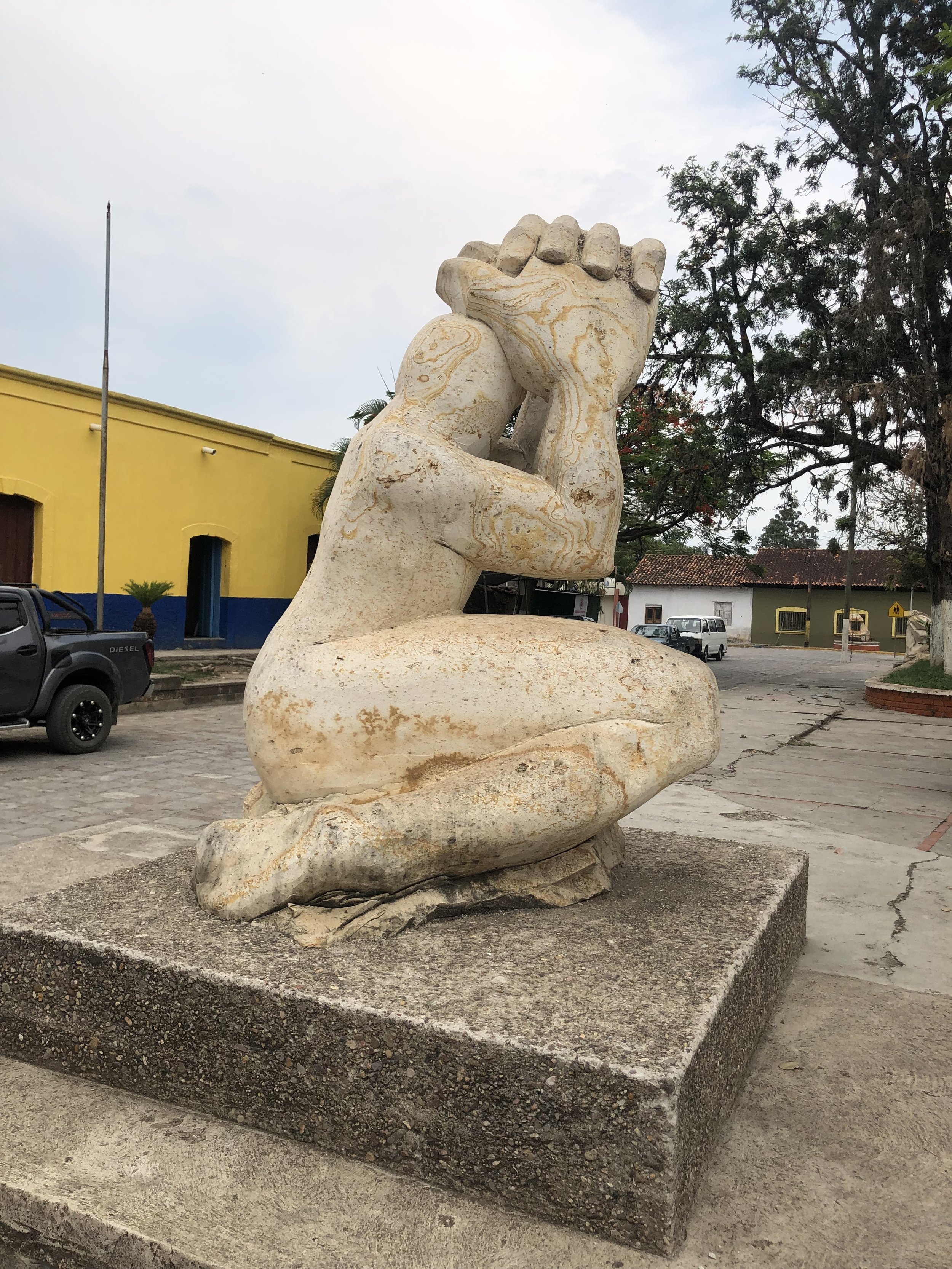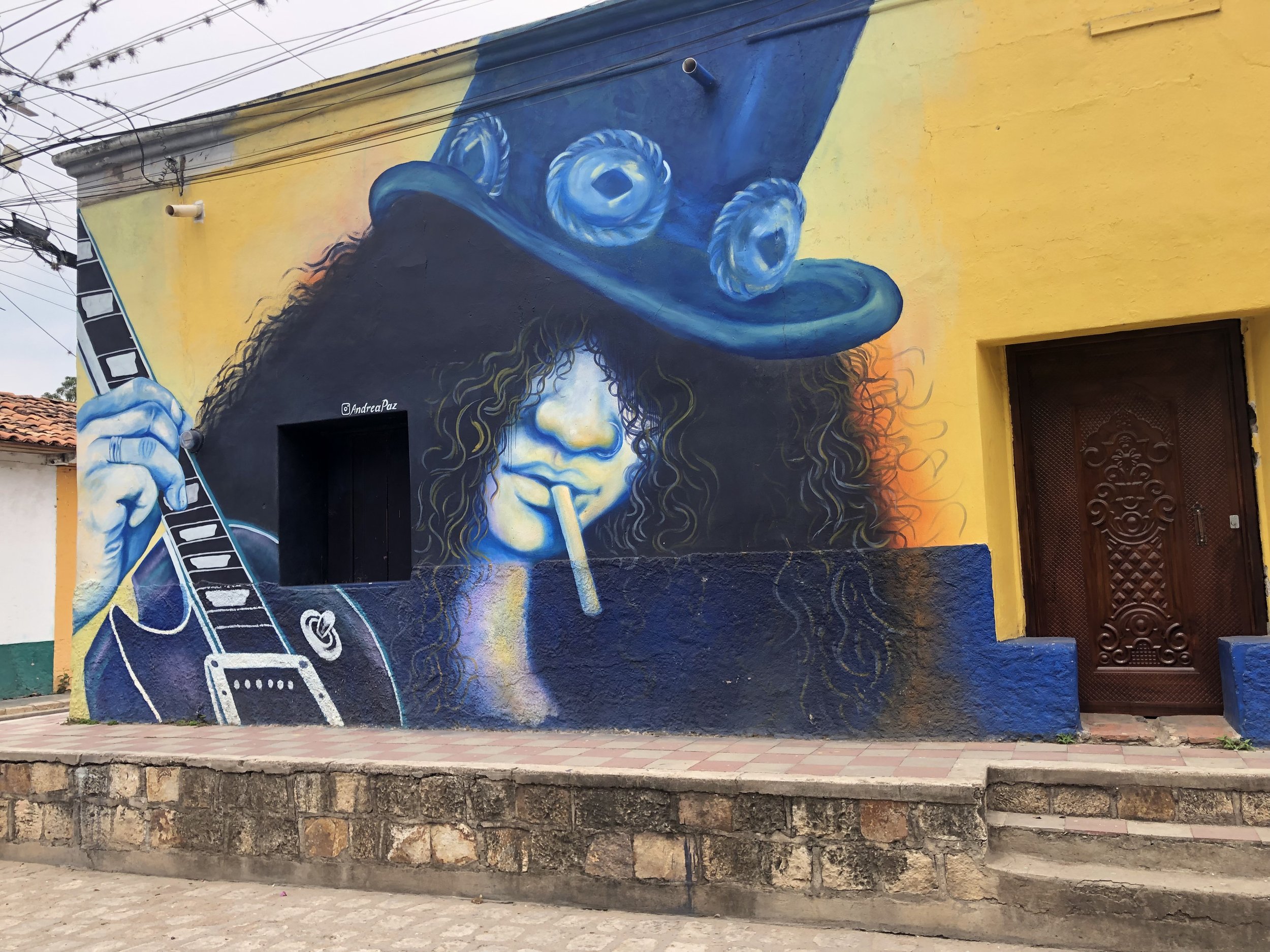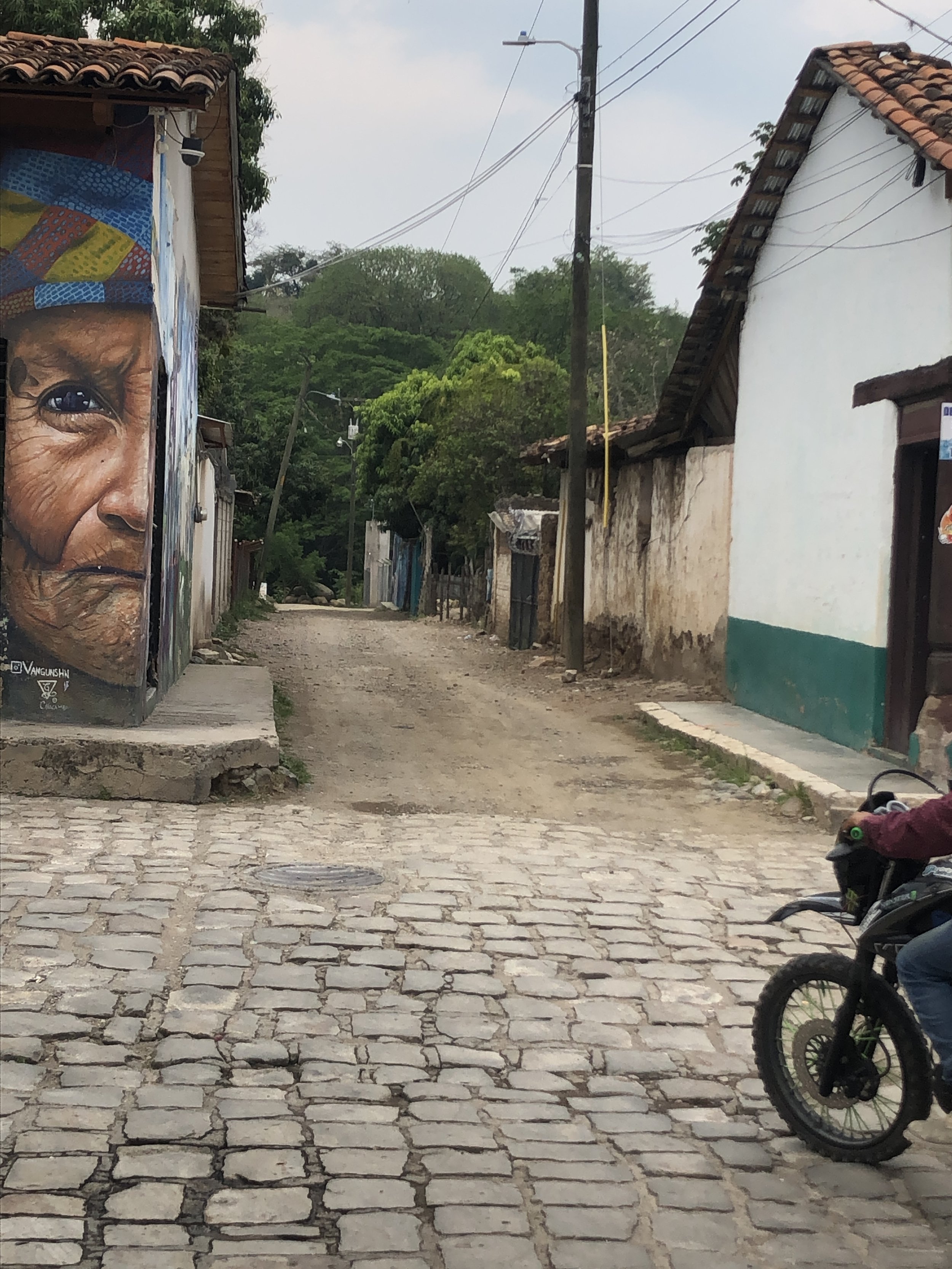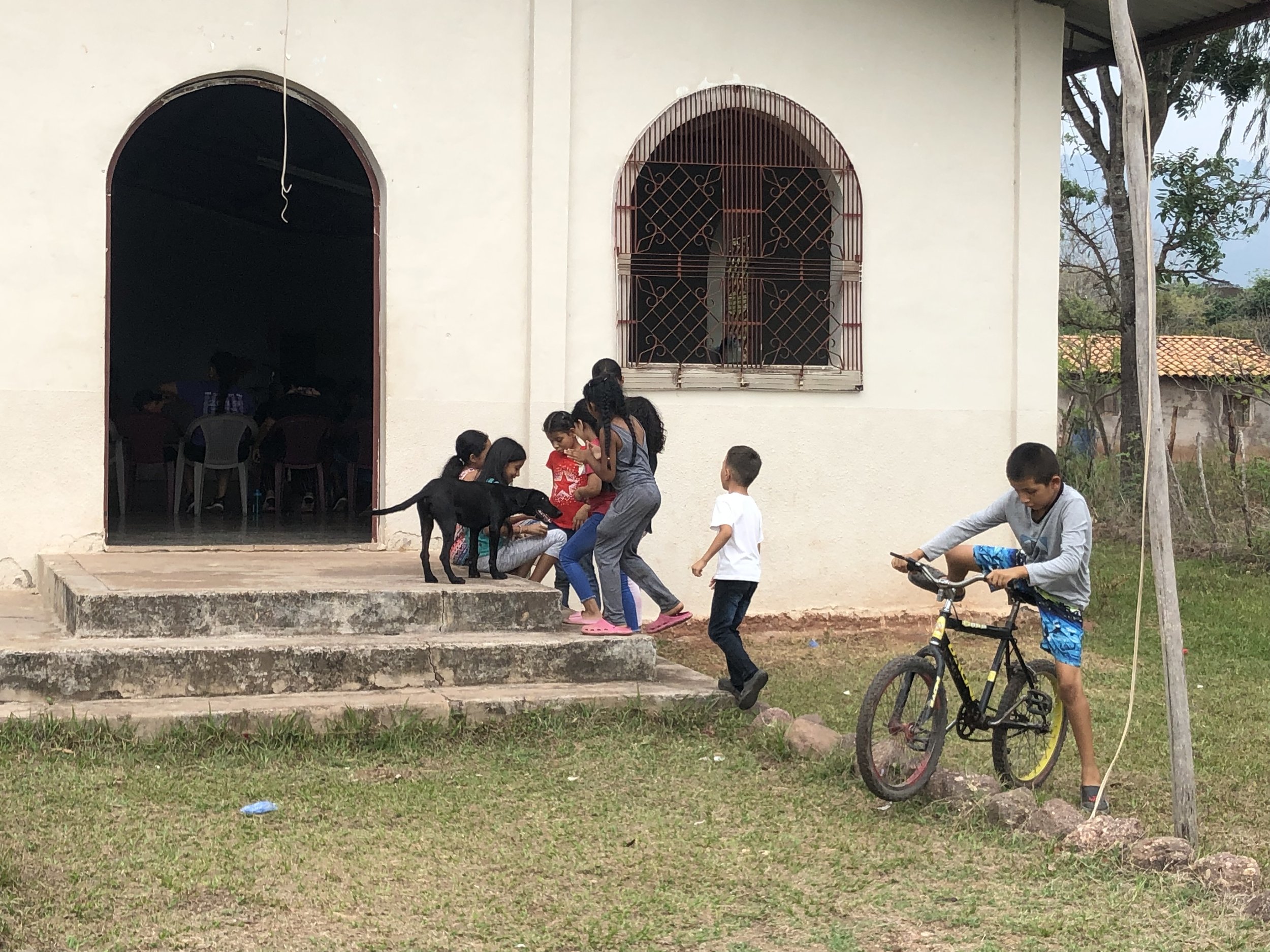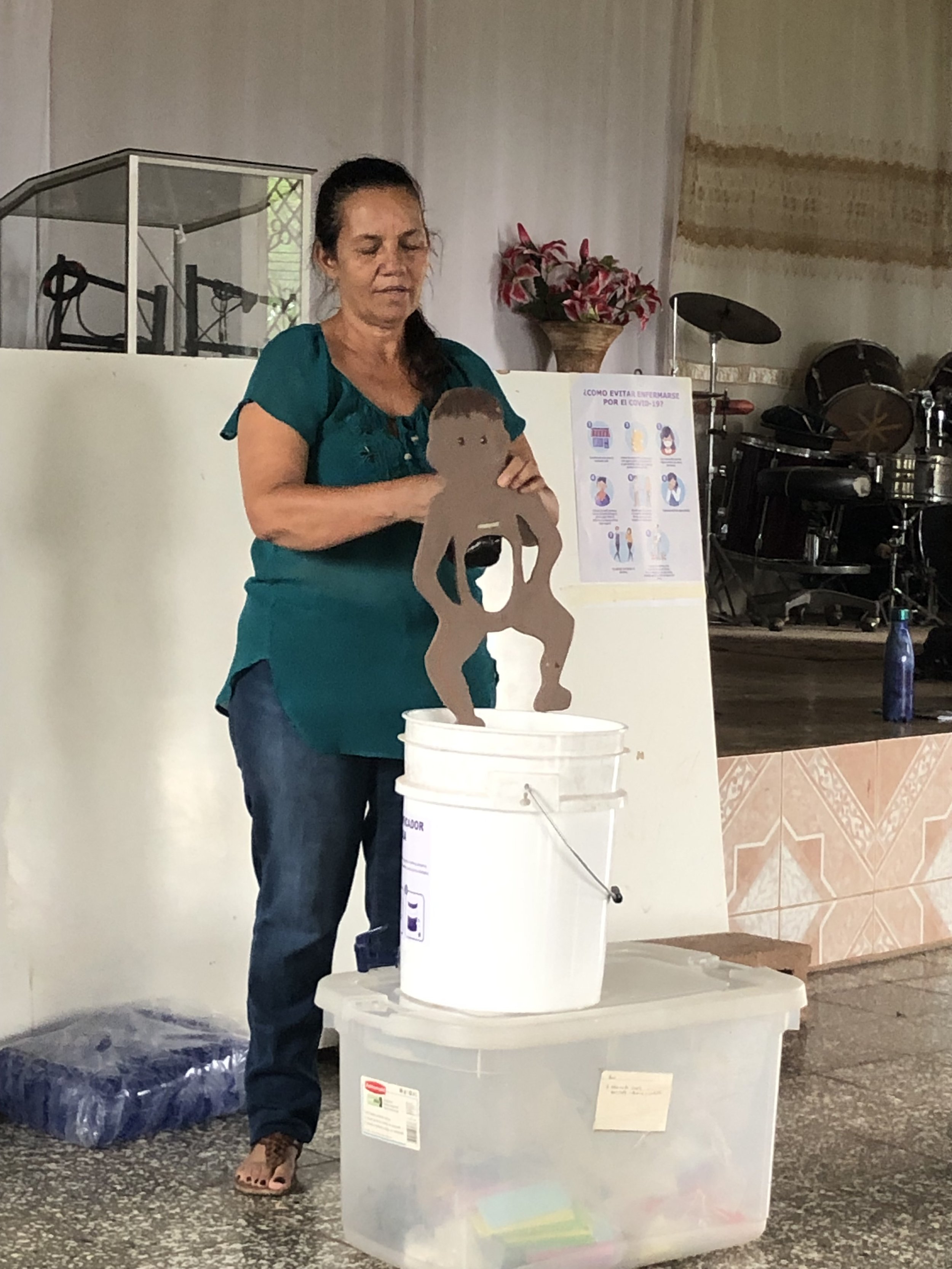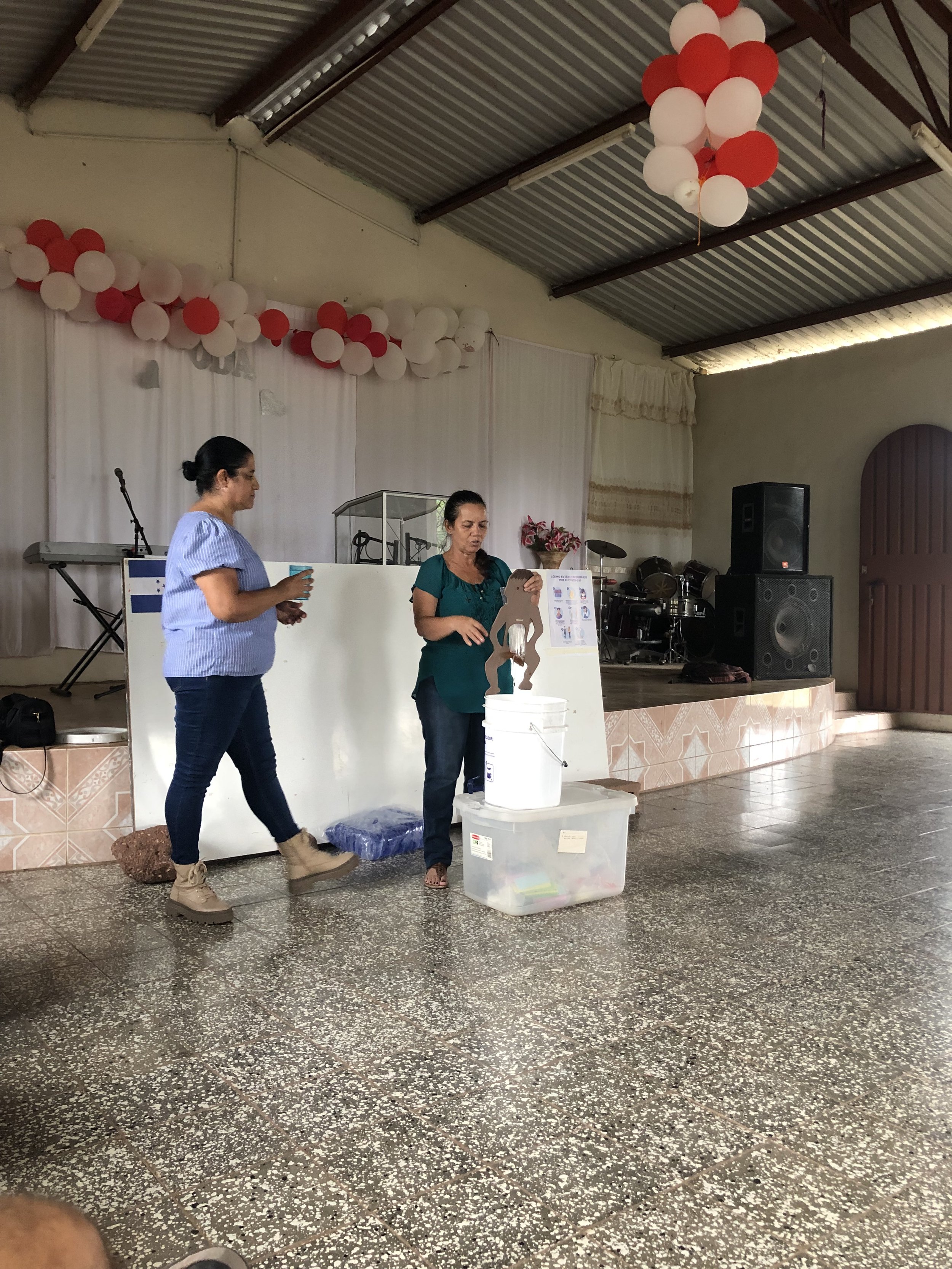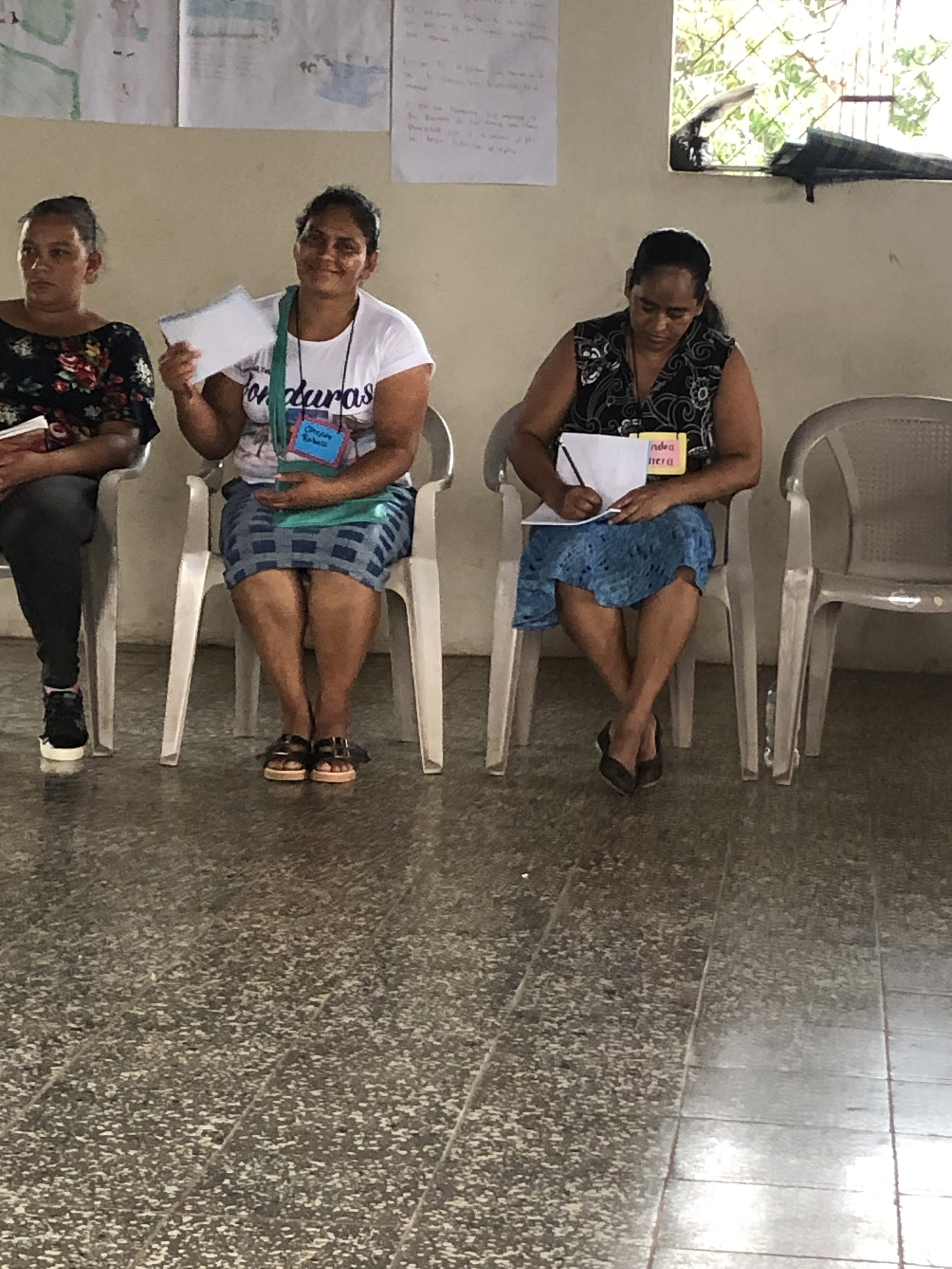Drilling rig starting up, Quebrada Grande, El Paraiso, Honduras
Early Wednesday we headed to Quebrada Grande - a rural community of 375 people - to catch the start of the new well we are sponsoring, and later to sit in on some of the 5-day health and hygiene workshop given by our team of Maestras. Ironically the name Quebrada Grande means big ravine, generally one that is full of water. Nowadays water is scarce - in ravines and elsewhere - and wells are the preferred source of secure water.
Residents, who have been waiting for this well for over a year, greeted us on the road. We posed with members of the Junta de Agua, the committee that organizes water projects for the community. Then we hopped back in our mini bus with a few members of the Junta and headed to the well site…
The photos above show community members watching the drilling unfold below, the rig and truck full of mud for drilling, a worker setting the drill in place, Jay & drilling foreman Luis, drilling parts, and me getting inaugurated with mud splattering up from the hole being drilled.
We took a lunch break in Cantarranas (a mural-filled town called Singing Frogs)…
After lunch we caught up with the Health & Hygiene Workshop, and learned about the serious issue of childhood diarrhea from contaminated water. Children and pets came in and out of the classroom space where their parents and older siblings sat engaged, speaking up, and taking notes.
Late in the aftenroon we headed back to Zamorano for dinner and discussion. It turned out a group of leaders from the Corredor Central or Corredor Seco was eating at the table adjacent to us. We had learned about this dry corridor that runs north and south in the center of the country from our visit to USAID the day before. It turned out these leaders had been brought to the University to learn agriculture and aquaculture techniques.
Leaders from the dry zone in the middle of Honduras
These young people told us that climate change has hit hard in the last three years. Wells that always produced are drying up as are the fields which they rely on for food and jobs. Unemployment is universal. Not surprisingly, this section of the country is experiencing the greatest out-migration from Honduras, mostly to the U.S. The people we spoke with are desperate yet hopeful and ready to embrace the right solution. We promised to start a WhatsApp group to share resources and contacts to ameliorate their situation. All nine we met wrote down their numbers and the sharing has begun. We will post updates in this blog.


